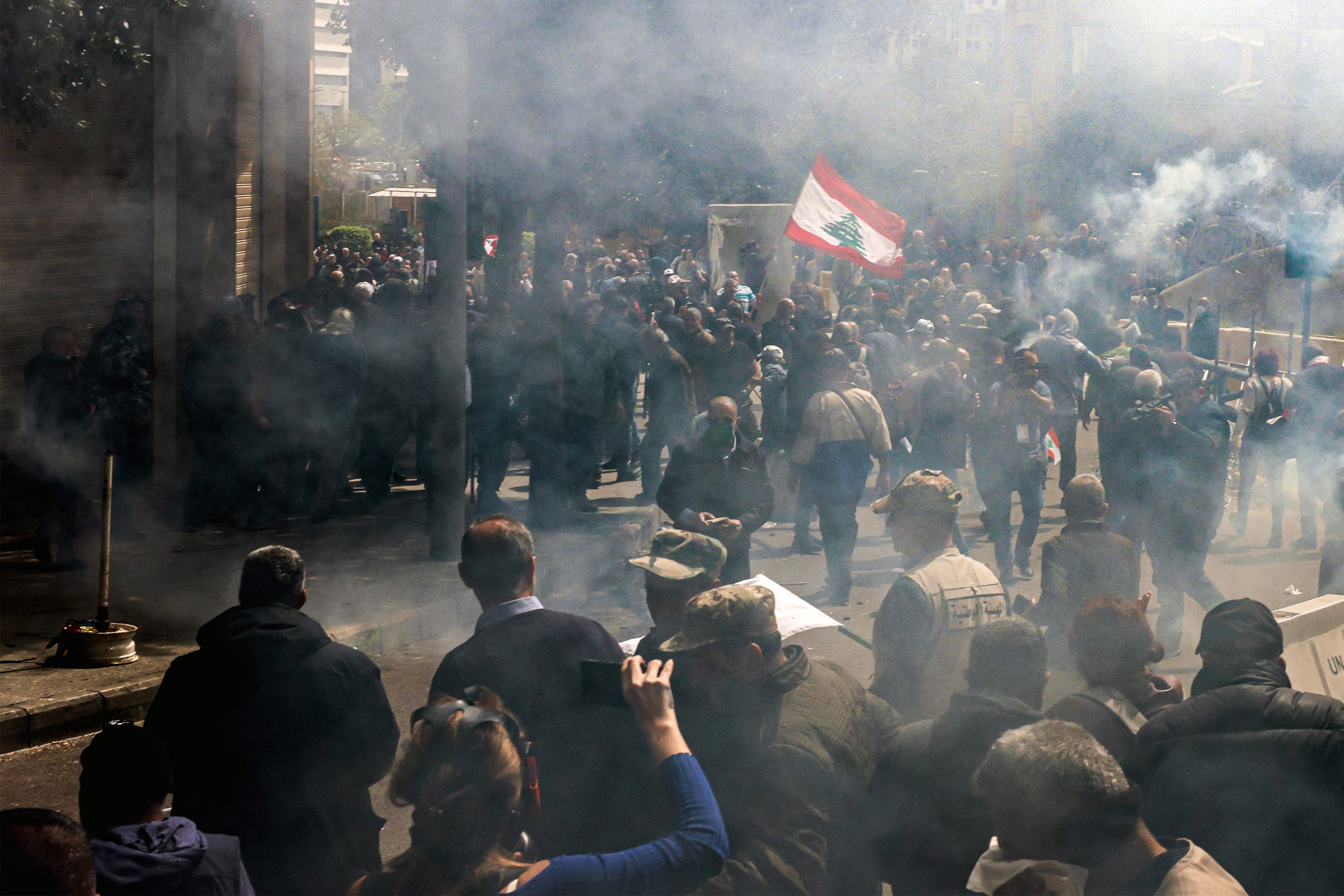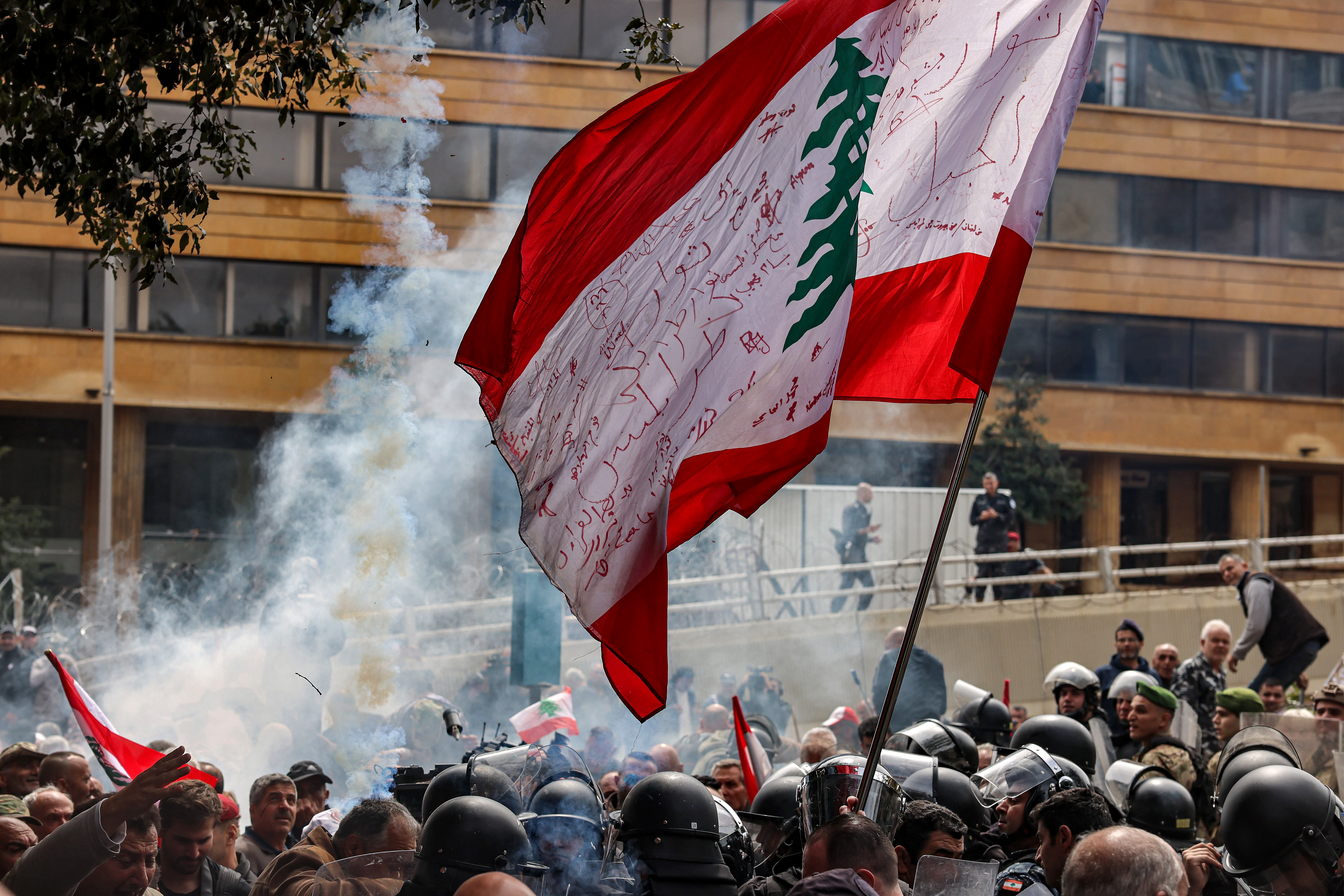
Lebanese officers have fired tear gas at hundreds of people, mostly retired members of the security forces, who had gathered near government buildings in the capital to protests against deteriorating economic conditions.
Crowds on Wednesday gathered in the streets of central Beirut carrying Lebanon’s tricolour or flags bearing the logos of security forces. The protest was called for by retired soldiers and depositors who have had limited access to their savings after local banks imposed informal capital controls amid Lebanon’s financial crisis, the worst in the country’s modern history.
The protesters demanding better pay hurled stones at the officers protecting the government headquarters and repeatedly tried to break through the fence.
Several people suffered breathing problems from the tear gas.
The demonstrators were angry at the worsening value of state pensions paid in the local currency. The Lebanese pound has lost more than 98 percent of its value against the United States dollar since 2019, with the situation deteriorating in recent weeks.
The pound hit a new low on Tuesday, selling for more than 143,000 pounds to the dollar before making some gains. The official rate is 15,000 pounds to the dollar.
#Lebanon pic.twitter.com/GS9LMXhyjt
— Zeina Khodr (@ZeinakhodrAljaz) March 22, 2023
Reporting from the protest, Al Jazeera’s Zeina Khodr said Lebanon is in the fourth year of a deep economic crisis, which experts say has its root in decades of corruption and mismanagement by a political class that has ruled the country since the end of the 1975-90 civil war.
“There is anger,” Khodr said.
“People believe that the political and business elite do not want to solve the crisis because that will involve economic and structural reforms and fighting corruption. If the elite does that, they lose control over the state and its resource which they have been exploiting for years now,” she added.
The crisis has led to school closures and left families unable to afford food and pay for fuel or other basic needs, Khodr said. Government-subsidised electricity, meanwhile, is mostly unavailable.
“Our kids are hungry. We’re hungry,” said Mohamad el-Khateeb, a 59-year-old who had served in the army for 32 years.
“We left the army with nothing. No healthcare, no welfare, our kids are out of school and prices are rising obscenely. What do you expect?” he added.
Patrick Mardini, director of the Lebanese Institute for Market Studies, said “the main reason behind the currency devaluation is the massive printing of Lebanese pound that is being pumped into the system.
He told Al Jazeera that “at the beginning of the crisis, we had around four trillion Lebanese pounds in circulation; today we are at around 70 trillion”.
Mardini said the situation was compounded by a lack of confidence and trust in the Central Bank and the whole banking system, as a whole.








